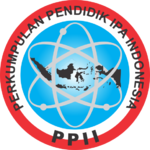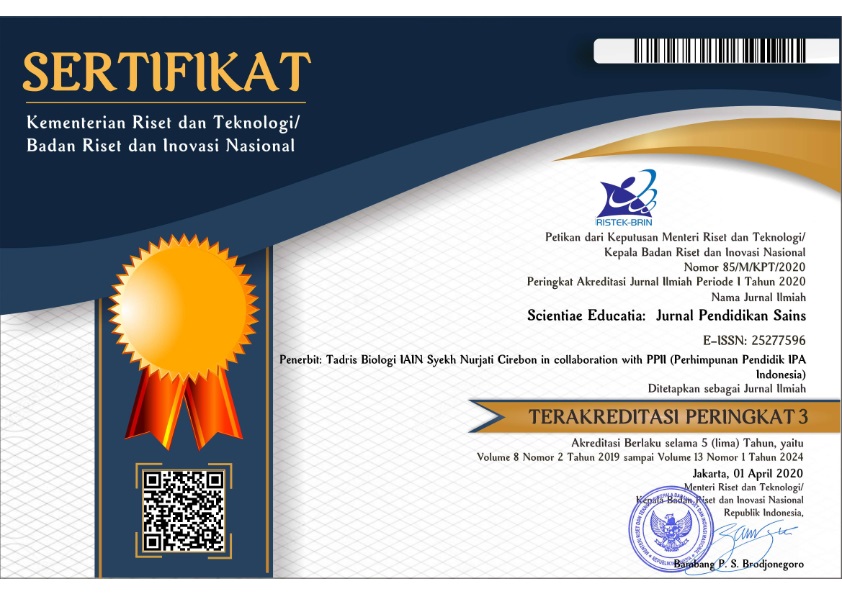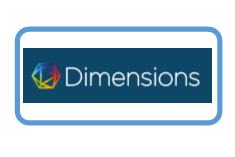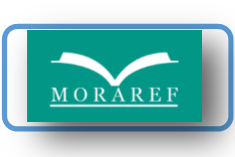The Effectiveness of Inquiry-Based Science Web-Module on the Students’ Thinking Skills and Positive Attitudes Towards Science
(1) Department of Science Education, Postgraduate Program, Yogyakarta State University
(2) Department of Science Education, Postgraduate Program, Yogyakarta State University
(*) Corresponding Author
Abstract
In the 21st century and the industrial revolution era 4.0, students are required to have thinking skills to solve problems around them by utilizing available information. But in Science learning, the material raised is not from the environment around the students. For example, in the material of organism or living things interaction, the ecosystem discussed is outside Indonesia, besides Indonesia has 47 types of ecosystem. One of them is Dieng. Less contextual Science material causes poor of students positive attitude towards Science. Thus, the purpose of this study is to identify the effect of using the Science module web on thinking skills and positive attitude towards Science. This study was a quasi-experimental study with class 7C and class 7D in SMP N 1 Wonosobo as subjects. Data collection technique used question and questionnaire. Data were processed using the Kruskal Wallis test, and it was found that the effect was largely using the effect size. The result of the study shows that there are differences in thinking skill and positive attitude towards Science between the experimental and control classes. The web module Science has a significant effect on thinking skill with effect size large of 0,9 and moderate effect on positive attitude towards Science with an effect size of 0,7.
Keywords
Full Text:
PDFReferences
Aktamiş, H., Hiğde, E., & Özden, B. (2016). Effects of the inquiry-based learning method on students' achievement, science process skills and attitudes towards science: A meta-analysis science. Journal of Turkish Science Education (TUSED), 13(4), 248-261. doi: 10.12973/tused.10183a
Azizah, U., & Nasrudin, H. (2014). Pemberdayaan kecakapan berpikir siswa SMA bertaraf internasional melalui pengembangan perangkat pembelajaran materi redox reaction berorientasi group investigation cooperative. Jurnal Pendidikan dan Pembelajaran (JPP), 20(2), 141-151.
Bustami, Y., Sayifuddin, D., & Afriana, R. (2018). The implementation of contextual learning to enhance biology students’ critical thinking skills. Jurnal Pendidikan Sains Indonesia, 7(4), 451-457. doi: 10.15294/jpii.v7i4.11721
Carol, et al. (2015). Thinking Skills and Personal Capabilities for Key Stages 1 & 2. UK: Northern Ireland Curriculum
Creswell, J., W., 2012, Research design pendekatan kualitatif, kuantitatif dan mixed; Cetakan ke-2, Yogyakarta: Pustaka Pelajar.
Denessen, E., Vos, N., Hasselman, F., & Louws, M. (2015). The relationship between a primary school teacher and student attitudes towards Science and technology. Education Research International, . 1-7. doi: 10.1155/2015/534690
FAO. (2011). E-learning methodologies a guide for designing and developing e-learning course. Rome: Education Organization of the United Nations
Fine, M. (2015). Inquiry-based learning: preparing young learners for the demands of the 21st century. Educator’s Voice, 7(2), 2-11. Retrieved from https://www.nysut.org/~/media/files/nysut/resources/2015/april/1_edvoiceviii_ch1.pdf?la=en
Gardner, P. (2014). Deciding in democracies: A role for thinking skills?. Policy Futures in Education, 12(2), 229-236. doi: 10.2304/pfie.2014.12.2.229
Hacieminoglu, E. (2016). Elementary school students' attitude toward science and related variables. International Journal of Environmental and Science Education, 11(2), 35-52. doi: 10.12973/ijese.2016.288a
Hairida, H. (2016). The effectiveness of using inquiry-based natural Science module with the authentic assessment to improve the critical thinking and inquiry skills of junior high school students. Jurnal Pendidikan IPA Indonesia, 5(2), 209-215. doi: 10.15294/jpii.v5i2.7681
Jas, I. (2012). Penggunaan media pembelajaran berbasis website dalam pembelajaran matematika. Journal Pendidikan Matematika UNP, 1(1). 1-5
Kuhlthau, C. C., Maniotes, L. K., & Caspari, A. K. (2007). Guided inquiry: Learning in 21st
century school. USA: Greenwood Publishing Group
Lally, P., Van Jaarsveld, C. H., Potts, H. W., & Wardle, J. (2010). How are habits formed: Modelling habit formation in the real world. European journal of social psychology, 40(6), 998-1009
Maisah, Marjono & Arianto. (2017). Pengaruh model pembelajaran inkuiri terbimbing terhadap kemampuan berpikir kritis siswa kelas X MIA pada materi pencemaran lingkungan di Surakarta. Jurnal Bioedukasi, 10(1), 71-78
Maltz, M. (2002). New Psycho-Cybernetics. Penguin.
Miri, B., David, B. C., & Uri, Z. (2007). Purposely teaching for the promotion of higher-order thinking skills: a case of critical thinking. Journal of Research in Science Education, 37(4), 353-369. doi: 10.1007/s11165-006-9029-2
Movahedzadeh, F. (2012). Improving students’ attitude toward science through blended learning. Science Education & Civic Engagement An International Journal, 3(2), 13-19. doi: 10.12691/wjce-5-4-4
Muzakir. (2012). Pengembangan life skill dalam pembelajaran sains. Jurnal Ilmiah Didaktika. 13(1). doi: 10.22373/jid.v13i1.460
Myers, R.E & Fouts, J.T. (2012). An analysis of high school science environments and attitude toward science. Journal of Research in Science Teaching, 29(9), 929-937. doi: 10.1002/tea.3660290904
National Education Association. (2012). Audiovisual instruction department, New Media, and College Teaching. Washington, D. C.: NEA.
Nijman, V. (2000). A faunal survey of the Dieng Mountains, Central Java. Indonesia. Journal of Distribution and Conservation of Endemic Primate Taxa. 32(2), 35-46. doi: 10.1046/j.1365-3008.1998.d01-24.x
Nugraha, Suyitno, & Susilaningsih. (2017). Analisis kemampuan berpikir kritis ditinjau dari keterampilan proses sains dan motivasi belajar melalui model PBL. Jurnal of Primary Education, 6(1), 35-43
Osborne, J., Simon, S., & Collins, S. (2003). Attitudes towards science: A review of the literature and its implications. International journal of science education, 25(9), 1049-1079.
Osman, K., Iksan, Z. H., & Halim, L. (2007). Sikap terhadap sains dan sikap saintifik di kalangan pelajar sains. Jurnal Pendidikan, 32(3), 39-60. doi: 14717/4471
Prastowo, A. (2015). Pandan kreatif membuat bahan ajar inovatif. Yogyakarta: Diva Press
Reynolds, R., Tavares, N. J., & Notari, M. (2017). 21st century skills development through inquiry-based learning. Journal of Educational Technology Research and Development, 59(2), 267-289. doi: 10.1007/978-981-10-2481-8_1
Selcuk, Caliskan & Erol. (2008). The Effect of Problem Solving Instruction on Physics Achievement, Problem Solving Performance a Strategy Use. Journal of Physics Education, 2(3). 151-166?. doi: 10.1016/j.sbspro.2010.03.315
Simpson, R. D., & Oliver. J. S. (2012). A summary of major influences on attitude toward science among adolescent students. Science Education, 74(1), 1-18. doi: 10.1002/sce.3730740102
Stern, P.C., Kalof, L., Dietz, T., & Guagnano, G.A. (2012). Values, beliefs, and proenvironmental action: attitude formation toward emergent attitude objects. Journal of Applied Social Psychology, 25(18), 1611-1636. doi: 10.1111/j.1559-1816.1995.tb02636.x
Supriyatna, J. (2008). Melestarikan alam Indonesia. Jakarta: Yayasan Obor Indonesia.
Taufiq, Dewi & Widiyatmoko. (2014). Pengembangan media pembelajaran IPA terpadu berkarakter peduli lingkunga tema “konservasi†berpendekatan science-edutainment. Jurnal Pendidikan IPA Indonesia, 3(2), 140-145. doi: 10.15294/jpii.v3i2.3113
Trilling & Fadel. (2009). 21st century skills learning for life in our times. San Francisco: Jossey-Bass
Wijaya, E. Y., Sudjimat, D. A., & Nyoto, A. (2016). Transformasi pendidikan abad 21 sebagai tuntutan pengembangan sumber daya manusia di era global. In Prosiding Seminar Nasional Pendidikan Matematika (Vol. 1, No. 26, pp. 263-278).
Wolf, S. J., & Fraser, B. J. (2017). Learning Environment, Attitudes, and Achievement among Middle-school Science Students Using Inquiry-based Laboratory Activities. Research in Science Education, 38(3), 321-341. doi: 10.1007/s11165-007-9052-y
Yazdi, M. (2012). E-Learning sebagai media pembelajaran interaktif berbasis teknologi informasi. Jurnal Ilmiah Foristek, 2(1), 143-152. Retrieved from http://jurnal.untad.ac.id/jurnal/index.php/FORISTEK/article/view/665/584
DOI: 10.24235/sc.educatia.v8i1.4099
Article Metrics
Abstract view : 299 timesPDF - 165 times
Refbacks
- There are currently no refbacks.
Scientiae Educatia: Jurnal Pendidikan Sains indexed by:

This work is licensed under a Creative Commons Attribution 4.0 International License.
Stat Counter (Link)



1.png)












